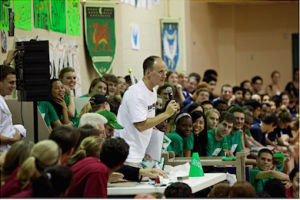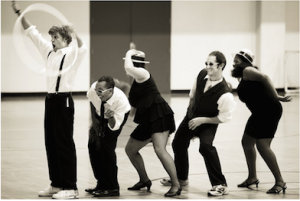As the semester comes to a close, it’s not unusual to see clusters of seniors chatting eagerly about how they’re going to spend their last summer before starting medical school. According to a study done in 2006 by the Mayo clinic, students that enter medical school with mental health profiles similar to their college peers. Although they spend their next few years training and studying on how to improve the health of others, they tend to disregard their own in the process. Reports show decreased attention to getting adequate sleep, meals, recreation and show higher rates of mental distress as student’s progress through medical school. Sadly, the same study has also shown that depressed students are less likely to reach out for help because of the stigma surrounding mental illness.
With the worrisome consequences of depression in medical students including possible burnout and increased rate of contemplated suicide, it is important to contemplate how a change in culture within the medical school environment can be brought about to tackle some of the stigma surrounding mental illness.
So, what can we do to bring about this change?
Lisolette Dyrbe, M.D., and the lead author of the Mayo study, has encouraged a lot of conversation about the issue.
“It’s certainly important for the student to learn the right coping strategies, time management skills, and stress reduction techniques. All of that is important, but it is not the entire answer. We also have to look at school-level initiatives. There needs to be organizational change.”
So, how are institutions responding?
Including pass/fail options for courses, reducing volume of course material, and giving students more opportunities to work and teach outside the hospital are just some of the ways that universities are working to lessens the stressful burden on patients. Many programs also provide mandatory resilience and mindfulness courses that teach coping mechanisms and stress management techniques. In addition, other universities have incorporated confidential web sites and hot lines for counseling, hired mental health experts, and have developed elective courses in health and wellness.
But, is this really helping?
Recent studies have examined these changes and have identified an important problem: students aren’t participating. Despite the good intentions of the universities and resources provided to the students, only a few seem to be taking advantage of these opportunities and these, more than likely, aren’t the ones that are in real need of care.
One program, though, has been able to show some success.
The Student Wellness Program at Vanderbilt medical school, which provides a variety of health and wellness activities, has been seen to improve the health of students by effectively partnering and empowering the medical students themselves into organizing and promoting their own health and interests. The program has allowed the students to be divided into four “colleges,” similar to the Hogwarts houses in Harry Potter, that allow the students to connect and organize activities that provide an outlet outside of the classroom. Dr. Scott Rodgers, the associate dean of medical student affairs describes the aim of the program perfectly and outlines the importance of health and happiness for these students.
“It’s a challenge for anyone to stay healthy and happy. But when doctors are able to stay healthy and happy, that means patients get physicians who are more compassionate and selfless. They end up with doctors who really have the energy to invest time in them.”
As undergraduate students pursuing careers in medicine, this discussion brings up some interesting conversations. What can we do to better prepare ourselves for medical school going forward? Are there ways that we can contribute to not only helping ourselves and our peers reduce stigma surrounding mental illness but also to improve health within the medical community?
sources: https://www.aamc.org/newsroom/reporter/jan2013/325922/stress.html; http://well.blogs.nytimes.com/2011/12/22/a-medical-school-more-like-hogwarts/?_php=true&_type=blogs&_r=0



![By Bryson Jack, Ministry of Information Photo Division Photographer [Public domain or Public domain], <a href="http://commons.wikimedia.org/wiki/File%3ABlood_Drying_Unit-_Processing_Blood_in_the_Laboratory%2C_Cambridge%2C_England%2C_UK%2C_1943_D16766.jpg">via Wikimedia Commons</a> Blood_Drying_Unit-_Processing_Blood_in_the_Laboratory,_Cambridge,_England,_UK,_1943_D16766](http://www.medicalfutureslab.org/wp-content/uploads/2013/04/Blood_Drying_Unit-_Processing_Blood_in_the_Laboratory_Cambridge_England_UK_1943_D16766.jpg)




